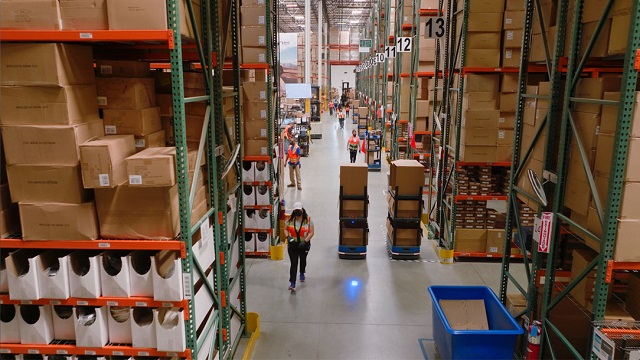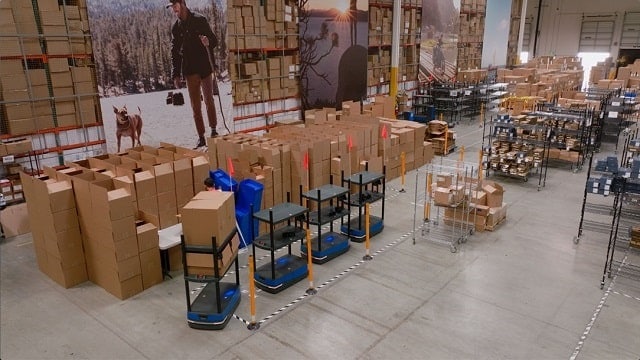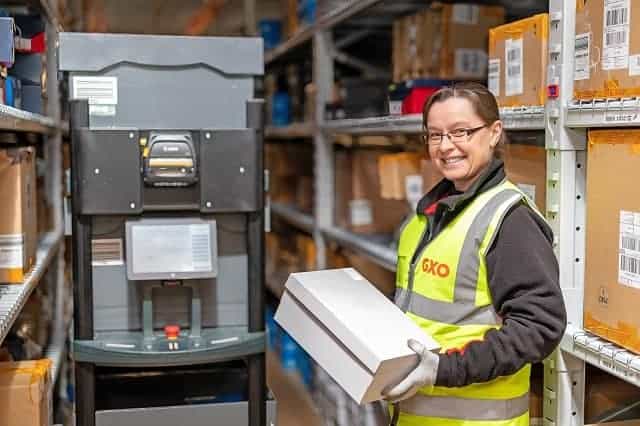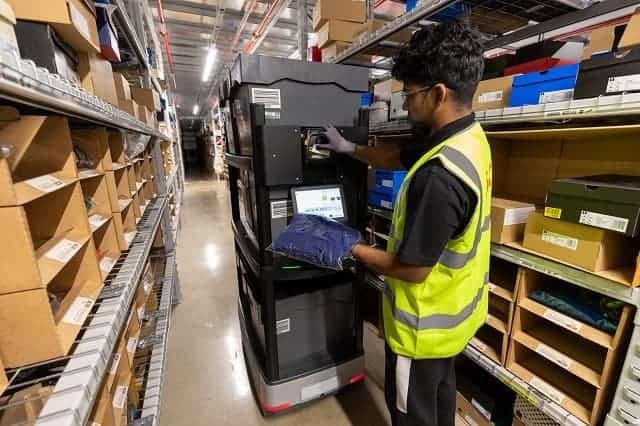
When you outsource one or more parts of your logistics process, such as warehousing, inventory management or order fulfillment, you’re utilizing a third-party logistics (3PL) provider. It’s an increasingly popular option for retailers and e-commerce businesses, making it possible to focus on your company’s core competencies while taking advantage of the efficiencies and expertise of a third-party company that specializes in logistics. In this article, we’ll review what third-party logistics is, the various types of outsourced logistics and what to look for in a 3PL.
What is third-party logistics?
Third-party logistics is an arrangement where you contract out one, some or all of your logistics operations to independent entities otherwise unaffiliated with your business.
Why enter into such an agreement? For one thing, logistics isn’t easy, particularly in today’s omnichannel environment. Depending on the size, scope and niche of your business, essential logistical operations like trucking and warehousing can cost serious money for not only the initial setup but also the day-to-day expense. By using a third-party provider, you avoid the headaches and expenses of running a truck fleet, maintaining staffing and operating commercial warehouses. Done right, 3PLs can improve customer service for both purchases and returns, streamline logistics management and reduce operating costs.
Before determining whether a 3PL solution is right for your business, you’ll want to know more about what exactly the term encompasses.
What is outsourced logistics?
Outsourcing logistics is simply working with other businesses to fulfill your company’s delivery, storage or transportation needs. The concept has been around for decades, but it has been dramatically advanced during the internet and e-commerce age. Warehouse automation solutions and integrated online platforms have now made it effortless to share real-time fulfillment data — information that’s necessary for 3PLs to work seamlessly in today’s era of next-day shipping.
To put some context on just how effective and widespread 3PLs have become, consider that 80 percent of Fortune 500 companies rely on it in some form or another. That statistic rises to 96 percent when you look only at Fortune 100 companies.
What are the types of outsourced logistics?
It’s important to note that 3PLs aren’t the only solution available when it comes to outsourcing your logistics; there are actually several options that can be leveraged depending on the level of integration you’re looking to have with external suppliers. These solutions are known as 1PL to 5PL. Here’s a quick look at each of them:
- 1PL, or first-party logistics, are in-house transportation services. A great example would be a florist who uses their own delivery van to drop off purchases to local buyers. In this scenario, there is no additional party involved – just the florist and the customer.
- 2PL introduces a courier of some sort. In the 2PL vs. 3PL debate, 2PL solutions aren’t integrated with your company when you contract their services. Shipping products directly from your facility through USPS, FedEx or UPS are all examples of 2PL solutions.
- 3PL creates an integrated system that allows for data sharing between your company and the 3PL. A 3PL provider doesn’t just receive customer fulfillment or transportation information like a 2PL business might — they are fed data in real-time. This allows the 3PL to create a streamlined, efficient solution that is reliable, long-term and in complete synchronicity with your business.
- 4PL is similar to 3PL, but the relationship between the third-party logistics firm and your business is brokered by a middleman.
- Lastly, 5PL introduces logistics consulting services.
Of all the above options, it’s not surprising to see why 3PL has become the preferred option for manufacturers and retailers looking for an ideal solution in today’s e-commerce marketplace. Because a 3PL provider can fully integrate with your company’s inventory and fulfillment software, you’ll enjoy seamless real-time data transfer between the home office and the outsourced warehouse, helping to ensure correct picking and timely shipping.
Services to look for in a 3PL provider
A third-party logistics provider is most easily visualized as a warehouse — and indeed, product storage is one of the most popular 3PL offerings — but there are more options available to you if you’re looking to outsource other elements of your operation or want additional capabilities beyond the basic storage and transport expectations. Here’s a rundown of the most important 3PL services you should look for in a provider:
Intermodal transportation & expedited freight
Intermodal shipping, or the use of mixed transportation methods to move goods from A to B, is a common 3PL specialty. Companies well-versed in this niche of logistics are responsible for all the paperwork, compliance and guesswork involved with intermodal shipping, and they can typically facilitate expedited freight requests as well — a must-have in today’s environment.
Warehouse storage & inventory management
Some shippers rely on 3PLs for warehouse storage, and nearly all logistics providers will offer some form of warehouse support. The key is to find a firm that uses today’s most innovative technologies to manage inventory levels, automate ordering and process returns.
We recommend finding a 3PL that incorporates cutting-edge solutions like our autonomous mobile robot (AMR), Chuck, which can help create a wall-to-wall fulfillment solution. The innate flexibility and system configurability of Chuck can result in dramatically improved operational efficiency, making this robot a smart investment for both a 3PL and its clients.
Partnering with a 3PL with these kinds of technological capabilities will save you money and improve your insight into just how efficient and effective your outsourcing strategy really is.
B2B & B2C fulfillment capability
Some 3PLs specialize in B2B logistics fulfillment, while others focus on B2C. Some might offer both services. When you’re shopping around for a 3PL, consider what kind of fulfillment options you’re looking for and ensure any potential partner will be able to deliver — literally.
Value-added services
A more recent phenomenon in the 3PL world is the support of value-added options, which are customized product features such as personalized notes, stickers or even custom packaging. The successful implementation of a value-added strategy at scale adds another layer of complexity to 3PL pick and pack order fulfillment but is well within the purview of a qualified provider.
Benefits of partnering with a 3PL
Without deep pockets, setting up and operating your own in-house logistics operation is likely not a feasible or realistic solution. That’s where a 3PL comes in. Thanks to their economies of scale, they can help you realize the benefits of a complete warehousing and transportation ecosystem at a price that will look more and more like a bargain as you compare it against alternative long-term options.
For a sixty-second take on why partnering with a 3PL can be so advantageous, consider the following:
- The cost savings associated with using a 3PL can be significant, as it eliminates the need for any overheads relating to warehouse facilities, fleet management and additional staffing.
- Your customers will benefit from a better-connected and more expedient shipping and return center that enables fast deliveries and easy returns.
- Your team can stop worrying about intermodal compliance, IFTA and other common logistics concerns.
- You can continue to scale the manufacturing and sales sides of your business without worrying about running out of warehouse capacity or overtaxing your logistics operation.
The bottom line? There’s a reason so many top companies choose to work with 3PLs. When you take advantage of their services, you can focus on your business’s core competencies while leaving the complex logistics processes to a third-party that specializes in them. Contracting with a 3PL can lead to a long term, strategic partnership.


